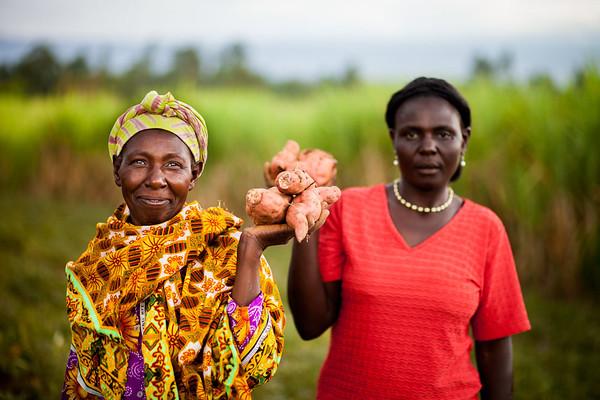Blog
Working together to build knowledge on pastoralism and agriculture in conflict zones
SPARC Executive Director Mark Redwood shares the vision that drives the Supporting Pastoralism and Agriculture in Recurrent and Protracted Crises (SPARC) consortium.
Publisher SPARC
By 2030, over 9 billion people will need nutritious food that is produced sustainably. Pastoralism, the main livelihood for around 50 million people in Africa and the Middle East, is a key part of our food-secure future. It’s not only an effective way of changing non-edible protein into nutritious food for us all, the environmental benefits of sustainable pastoralism include preserving soil fertility and carbon, as well as biodiversity conservation. Yet conflict has gripped many parts of the continent, and the challenges of this for farmers and herders, and to development, are severe: a threat to agricultural and pastoralist livelihoods, and by extension to food security.
Limited research in conflict-affected areas
In many conflict-affected communities, pastoralists (herders) and sedentary farmers are being forced to vie for access to dwindling resources, such as water, and land for grazing. Social programmes are weak or non-existent, and jobs hard to come by for those wanting to diversify their incomes. Decades of excellent work on agriculture and pastoralism have been done and we have a better understanding of development now than we ever have. Yet, only limited research has been done in some conflict zones, millions remain food insecure and some truly innovative and exciting ideas and success stories have never been scaled-up. Supporting Pastoralism and Agriculture in Recurrent and Protracted Crises (SPARC) was born out of our desire to situate existing knowledge on pastoralism and agriculture in conflict affected states in order to improve humanitarian assistance, prevent crises before they happen, and provide practitioners with the insight and tools they need to improve the effectiveness of development.
We still have many lessons to learn if we are to face these challenges: programming often takes place in organisational siloes; social protection and support for farmers and pastoralists is still limited and/or has high failure rates; and many gaps remain in our understanding of how to anticipate and prevent crises versus picking up the pieces afterwards.
What makes SPARC different
At SPARC, we will do things differently, by:
- Working in partnership with colleagues across the UK Government and other key development partners to integrate elements from disparate ministries and organisations, to refine and promote key lessons and opportunities;
- Collecting evaluating and curating existing knowledge to identify gaps and improve learning for different stakeholder groups and actors;
- Engaging in some of the most difficult and challenging contexts: states in, or emerging from, protracted and complex crises such as war, famine and drought;
- Tackling and deepening our understanding of innovation: why do some great ideas succeed in one place, but can’t be brought to scale? What works where and why?
Pastoralism, agro-pastoralism and farming hold immense opportunities that we aim to capture and promote. Not least the exciting potential pastoralism holds as an way to promote Nature Based Solutions such as land stewardship, or how the digital transformation, now accelerated by the COVID pandemic, can contribute to market development and support better incomes and futures for millions of herders and farmers.
Tensions and trade-offs in development
At SPARC we will also explore and nurture open debate about the tensions and trade-offs that are a fact of development. Presenting these challenges, with evidence to match, is critical if we are to overcome these hurdles, and support millions of people to improve their lives. We would like you to join us in this journey. SPARC aims to partner with leading organisations in the field, and we are already speaking with key funding agencies to understand better what works and what does not, and how SPARC can help. Over the coming five years, we will drive research forward to respond to the key needs and help address the complex array of challenges faced by millions of people living in crises-affected countries.
Follow us @SPARC_Ideas and @waterandclimate

Women grow nutritious crops, Kenya
Credit Image by Fintrac Inc. / USAID - CC BY-NC 2.0